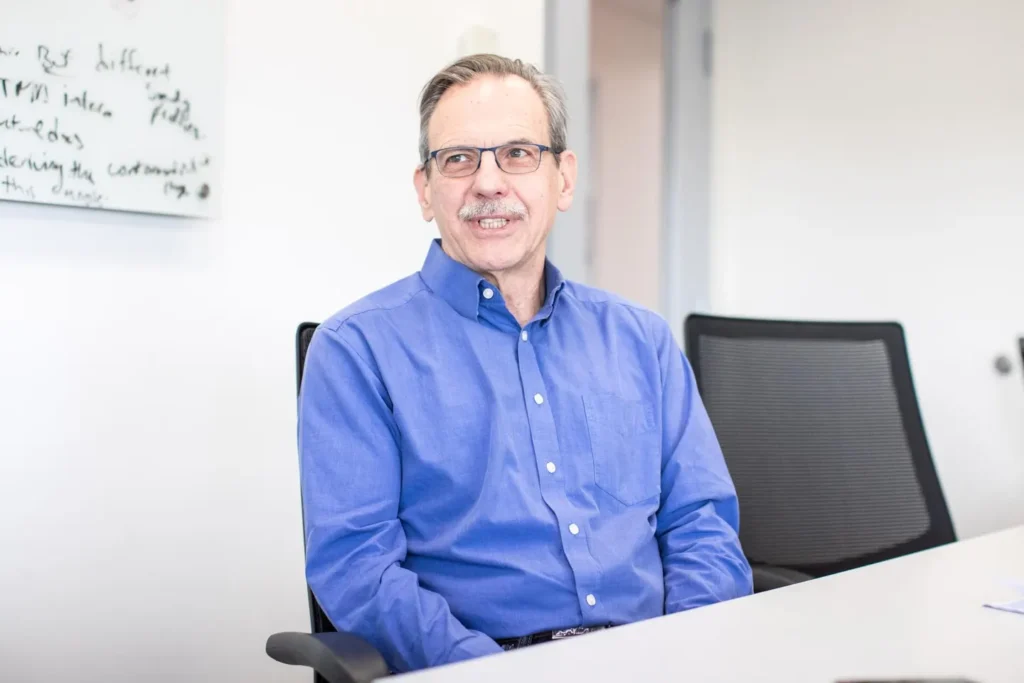Jul 8, 2024,02:49pm EDT
Harvard professor Timothy Springer first made headlines in 2020 when biotech company Moderna, which he had invested in, became a household name due to its Covid-19 vaccines. This stock rally turned him into a billionaire. Now, he’s poised for another substantial windfall from pharma giant Eli Lilly’s $3.2 billion acquisition of Morphic Holding, a biotech firm Springer founded in 2014.
Eli Lilly announced Monday it would acquire the Waltham, Massachusetts-based company for $57 per share in cash. Springer, who owns about 16% of Morphic’s stock, stands to receive approximately $435 million (pretax) when the deal closes in the third quarter of this year.
The announcement caused Morphic’s share price to surge by 75%, reaching $55.79 as of 2:45 pm Eastern on Monday. The sale price represents a 280% gain for Springer since the company went public at $15 a share in July 2019. Forbes estimates his net worth to be $2 billion as of Monday afternoon. Springer declined to comment for this story.
Morphic is developing oral drugs using integrins, proteins that help cells attach to and communicate with other cells. The company’s therapies target autoimmune diseases and chronic conditions like inflammatory bowel disease and cancer. This research drew Eli Lilly’s interest, particularly in MORF-057, a small molecule inhibitor currently in Phase 2 studies for treating ulcerative colitis and Crohn’s disease.
“The trials for inflammatory bowel disease are very long, and a major pharmaceutical partner was always a consideration,” Springer told Endpoints News on Monday. “Lilly’s bid was unexpected. The company was not put up for sale. Lilly only wanted the [MORF-057] program.”
Springer, 76, earned a Ph.D. in molecular biology in 1976 and began teaching at Harvard the following year. His groundbreaking research as an immunologist led to the discovery of integrins and lymphocyte function-associated molecules in the 1980s. This work laid the foundation for LeukoSite, a biotech company he founded in 1993. LeukoSite went public in 1998 and was sold to Millennium Pharmaceuticals for $635 million a year later, netting Springer $100 million in Millennium shares.
“My rigor in my science is validated by the fact that the results I have in my laboratory can be reproduced in the companies I found and be turned into drugs,” Springer told Forbes in 2020.
In addition to Morphic and Moderna, Springer has founded or been an early investor in at least three publicly traded biotech firms, including RNA cell therapy firm Cartesian Therapeutics, therapeutic protein and antibody firm Tectonic Therapeutic, and Scholar Rock, which develops therapies for serious diseases. His work on integrins also earned him the prestigious Albert Lasker Basic Medical Research award in 2022, alongside two other scientists.
“For Scholar Rock and Morphic, I’m a founder of those companies and I came up with the concepts for their creation as a scientist,” he told Forbes in 2020. “My philosophy is investing in what you know, and I’m a scientist at heart. I’m an active investor and also a very rigorous scientist.”
This year has brought additional success for Springer. Tectonic Therapeutic, co-founded in 2019, merged with publicly traded Avrobio in June and raised $131 million in a private placement. Springer invested approximately $19 million in Tectonic in June 2022 and another $42 million in January as part of the merger, increasing his stake to 29%. That stake is now valued at about $67 million.
Springer’s best investment to date, Moderna, was backed in 2010 with about $5 million. Forbes estimates his stake in the company, around 3%, to be worth about $1.4 billion. Besides his investments, Springer is also an active philanthropist. He founded the Institute for Protein Innovation (IPI), a Boston-based nonprofit focused on protein science research, in 2017, and has donated at least $250 million to the institute over the years.
“I like active investing, but I also very much like active philanthropy,” he told Forbes in 2020. “My motivation behind [IPI] is not only to help develop new reliable antibodies that scientists around the world can use for biological discovery, but also new technology that will just allow many more discoveries to be made.”

